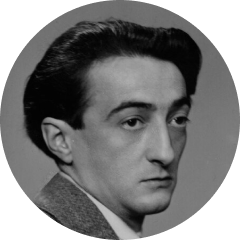Ronald Duncan
(1914–82)
Ronald Duncan (1914–82), writer, poet and playwright, librettist, autobiographer. Born in Rhodesia (Zimbabwe), he was brought up in London and studied under F. R. Leavis at Downing College, Cambridge, 1933–6. A pacifist, he wrote The Complete Pacifist (1936), as well as the words for Pacifist March, for the Peace Pledge Union, with music by Benjamin Britten (1937). He assisted his friend Britten in shaping Peter Grimes (1942–3), and wrote the complete libretto for Britten’s opera The Rape of Lucrezia (1945–6). Influenced by Ezra Pound, with whom he had made friends in Italy, he founded a magazine called Townsman, which ran for 23 issues, 1938–45. In 1939 he declared himself a conscientious objector and set up a cooperative farming enterprise in Devon, where he wrote much about agriculture and husbandry. His works include the plays This Way to the Tomb (performed at the Mercury Theatre, 1945), Stratton (1950), Our Lady’s Tumbler (1951), Don Juan (1953), and The Catalyst (1958), and poetry including The Solitudes – all published by TSE at F&F. He wrote the script for the movie Girl on a Motorcycle (1968), directed by Jack Cardiff and starring Marianne Faithfull. Other titles include The Eagle has Two Heads (1946), a translation of Jean Cocteau’s L’aigle à deux têtes, and other works by Cocteau. He was instrumental in the establishment of the English Stage Company at the Royal Court Theatre in 1956. See too his wilfully controversial memoirs: All Men are Islands (1964); How to Make Enemies (1968); Obsessed (1977); Working with Britten: A Personal Memoir (1977).
